The Comprehensive Guide to Understanding Your Fat Guinea Pig
Do you ever feel like your guinea pig is eating more than it should? That little one has some extra fur and it might be time to look into why. We're here to help you understand your fat guinea pig - what's behind the fluff and how to make sure it stays happy and healthy!
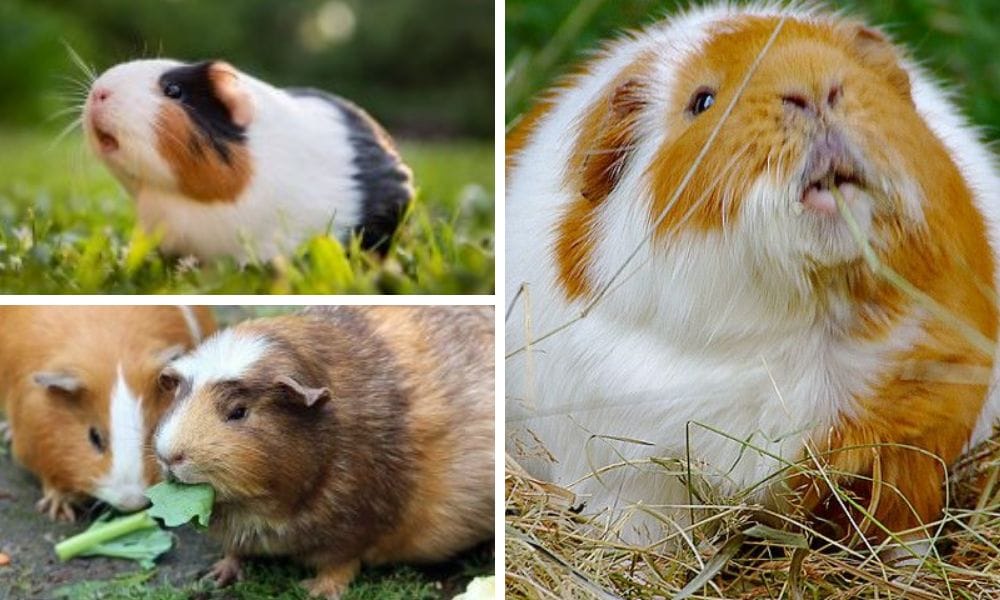
Key Takeaways:
- Recognizing the signs of an overweight guinea pig is crucial for their health.
- A balanced diet and regular exercise are key to managing a guinea pig's weight.
- Consultation with a veterinarian is essential for a tailored weight management plan.
Guinea pigs, often affectionately referred to as furry potatoes, have a way of wiggling into our hearts with their endearing squeaks and cuddly nature. However, as piggy parents, it's our responsibility to ensure that these small pets maintain a healthy weight. This comprehensive guide will delve into the world of the fat guinea pig, exploring the causes, risks, and solutions to this common issue.
Understanding Guinea Pig Size and Weight
Guinea pigs come in various sizes and breeds, each with its own range of normal weight. A healthy guinea pig's weight is typically influenced by factors such as age, breed, and overall health. Regular weigh-ins using a gram scale are essential to monitor your piggy's weight. Weekly weigh-ins can help you track any changes and address them promptly.
The Risks of an Overweight Guinea Pig
Carrying extra weight can lead to a host of health problems for guinea pigs, much like in humans. Heart problems, diabetes, and other health issues such as urine scald can arise from excess weight. It's crucial to recognize when your guinea pig is overweight to prevent these complications and ensure good health and overall quality of life.
Diet: The Cornerstone of a Healthy Guinea Pig
Guinea pig's diet plays a pivotal role in their weight management. A healthy diet for these small creatures should consist primarily of grass hay, which aids in digestion and dental health. Fresh vegetables rich in Vitamin C and a limited amount of pellets should complement their hay intake. Too much food, especially high-calorie treats, can lead to weight gain.
The Perils of Too Little Exercise
Exercise is just as important for guinea pigs as it is for humans. An overweight guinea pig often gets too little exercise, which contributes to their weight problem. Ensuring your guinea pig has enough space to move around and explore is vital. A spacious cage and regular playtime outside the cage can help your guinea pig lose weight and maintain a healthy weight.
Identifying if Your Guinea Pig is Overweight
Knowing how to tell if your guinea pig is overweight is the first step to addressing the issue. Look for signs such as difficulty in moving around, excess fat around the legs and chin, and difficulty in feeling the ribs. If you suspect your guinea pig's weight is not within a normal range, a visit to the veterinarian is warranted.
The Role of Regular Weigh-Ins
Regular weigh-ins are an invaluable tool for monitoring your guinea pig's weight. A weekly check on the gram scale can alert you to any concerning weight gain or loss. This practice allows you to adjust your guinea pig's food intake and exercise regimen as needed to maintain a healthy weight.
Monitoring Your Guinea Pig's Caloric Balance
When it comes to preventing your pet from becoming one of the many overweight guinea pigs, understanding the concept of caloric balance is crucial. Just like humans, if a guinea pig's diet involves consuming more calories than it expends, the result is weight gain. It's important to measure your guinea pig's food intake not just by the amount but by the calorie content as well. This means being mindful of the types of food provided, as some are more calorie-dense than others. For instance, a small piece of fruit can contain significantly more calories than a handful of leafy greens.
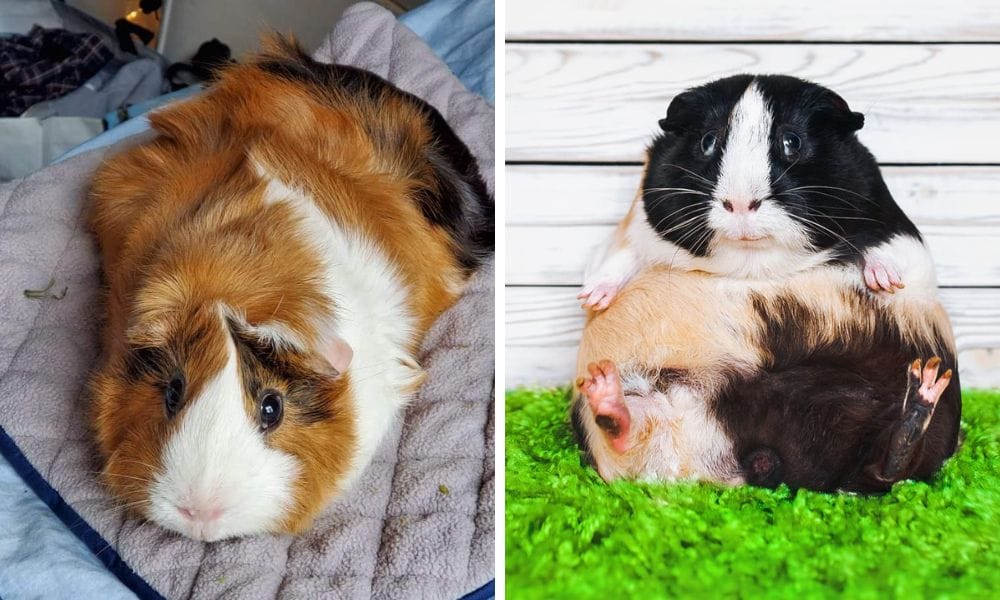
In addition to monitoring what they eat, consider the frequency and timing of feeding. Guinea pigs gain weight easily if they have constant access to high-calorie foods. Establishing a feeding schedule and sticking to it can help regulate your piggy's weight. Remember, it's not just about limiting food; it's about providing the right balance of nutrients. Extra nutrition doesn't always equate to better health, especially if it leads to an excess calorie intake. Regular weigh-ins can help track your pet's progress and adjust their diet as needed.
The Intricacies of Guinea Pig Nutrition
When it comes to your guinea pig's diet, it's not just about the quantity but also the quality of food they consume. A balanced diet is crucial for maintaining an optimal weight and preventing obesity. Guinea pigs require a mix of hay, fresh vegetables, and a small amount of fortified pellets. Hay should be the mainstay of their diet, providing the necessary fiber for digestive health. Without enough fiber, guinea pigs can become overweight as they might turn to higher calorie foods instead.
Moreover, vitamin C is an essential part of a guinea pig's food intake since they cannot produce it themselves. Lack of vitamin C can lead to serious health issues, including a weakened immune system and potential weight gain due to inactivity. Fresh leafy greens like kale and parsley, along with bell peppers, are excellent sources of this vital nutrient. Always ensure that the treats you offer are healthy and given in moderation to avoid inadvertently contributing to your piggy's weight gain.
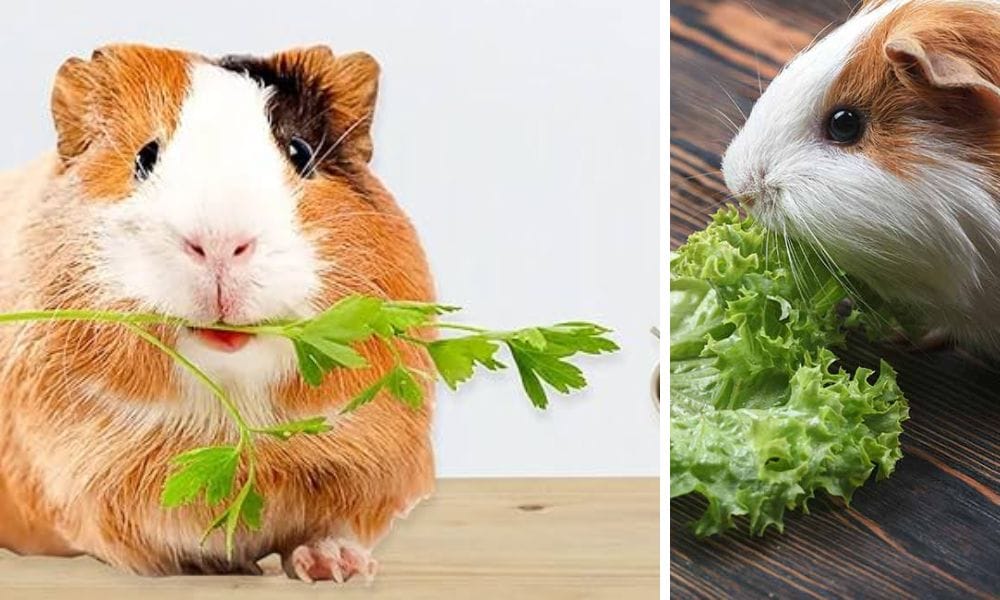
The Nuances of Guinea Pig's Diet Adjustments
When it comes to managing your guinea pig's weight, understanding the nuances of diet adjustments is crucial. A guinea pig's diet should be rich in fiber and low in fats and sugars. If you notice your piggy's weight creeping up, it's time to evaluate their food intake. Start by reducing the amount of high-calorie foods, such as certain fruits and store-bought treats, and increase the amount of hay and leafy greens. Remember, sudden changes can upset their digestive system, so any adjustments should be gradual and carefully monitored.
Moreover, it's not just about reducing the quantity of food, but also about ensuring the quality of their diet. Guinea pigs require a balanced intake of vitamins and minerals, particularly Vitamin C, which they cannot produce on their own. Supplement their meals with specially formulated guinea pig pellets that contain the necessary nutrients. Keep an eye on the ingredients list to avoid fillers and unhealthy additives that could contribute to weight gain. By fine-tuning your guinea pig's diet, you can help them maintain a healthy weight and prevent obesity-related issues.
The Importance of Regular Weigh-Ins for Guinea Pigs
Regular weigh-ins are an essential part of monitoring your guinea pig's health. Weekly weigh-ins can help you track your guinea pig's weight fluctuations and identify any concerning trends early on. A digital kitchen scale is perfect for this task; just make sure your furry friend is calm and secure during the process. Consistency is key, so try to weigh them at the same time each week, ideally before their first meal of the day. This will give you the most accurate reflection of their true weight.
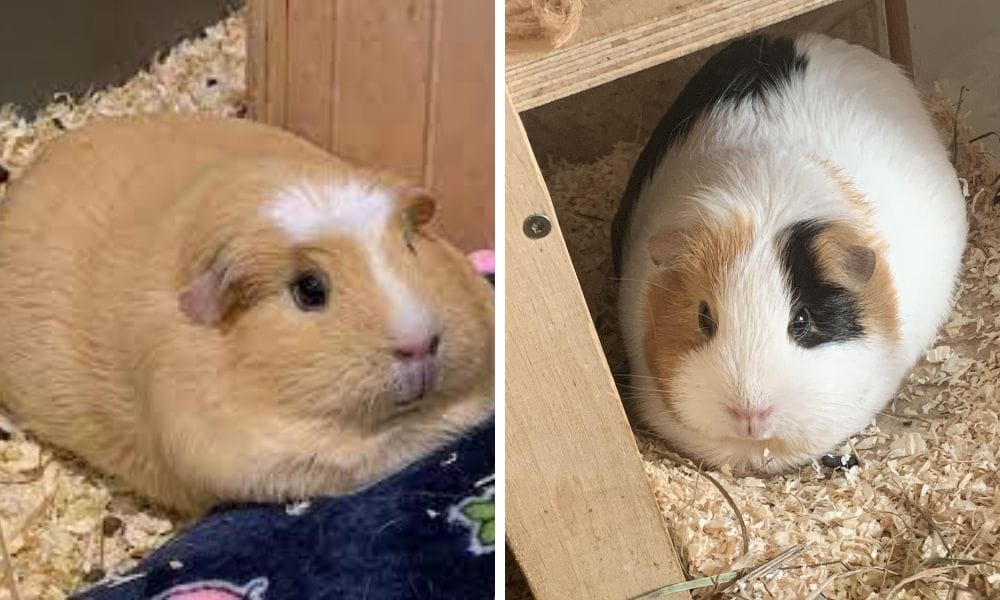
If you notice your guinea pig's weight is increasing or decreasing significantly, it could be a sign of an underlying health issue, such as heart problems or diabetes, which are more common in overweight guinea pigs. Regular weigh-ins not only help you manage their food intake but also serve as an early warning system for potential health concerns. By keeping a close eye on your guinea pig's weight, you can work with your vet to make informed decisions about their diet and exercise routine, ensuring your pet stays happy and healthy.
The Connection Between Weight and Wellness
Regular weigh-ins are a practical approach to monitoring your guinea pig's weight and overall health. Weekly weigh-ins can help you detect any sudden changes that might indicate a health issue, such as heart problems or diabetes, which are more common in overweight guinea pigs. By keeping track of your pet's weight, you can adjust their food intake and exercise routine as needed to help them maintain a healthy weight.
Guinea pig's fur can also be an indicator of their health status. A shiny, full coat suggests good nutrition and well-being, while a dull or patchy coat might signal a problem, including issues related to being overweight. If you notice any changes in your guinea pig's fur or weight, it's important to consult with a veterinarian. They can provide guidance on diet adjustments and health interventions to ensure your furry friend stays happy and healthy.
The Significance of a Healthy Coat
A guinea pig's fur can tell you a lot about their overall health, including issues related to weight. An overweight guinea pig may struggle with grooming, leading to a coat that looks unkempt or matted. This is because excess weight can restrict their ability to reach certain parts of their body. On the other hand, a guinea pig losing weight might also display changes in their fur's condition, potentially indicating an underlying health issue. A healthy coat should be smooth, shiny, and free of bald patches.
Regularly checking your guinea pig's fur during weekly weigh-ins can serve as an early warning system for potential health problems. If you notice any changes in the texture or appearance of your pet's coat, it's a valid domain for concern and a good time to consult with your vet. Rabbits and guinea pigs often get lumped together, but their care, especially regarding diet and weight management, can differ significantly. Always seek advice tailored to guinea pigs to ensure your furry friend maintains a glossy coat and a healthy weight.
Adjusting Your Guinea Pig's Food Intake
If you find that your guinea pig is gaining weight, it may be necessary to adjust their food intake. This doesn't mean simply giving them less food but rather ensuring they're getting the right food in the correct amounts. A focus on high-fiber, low-calorie foods like hay and fresh vegetables is key, while treats should be given sparingly.
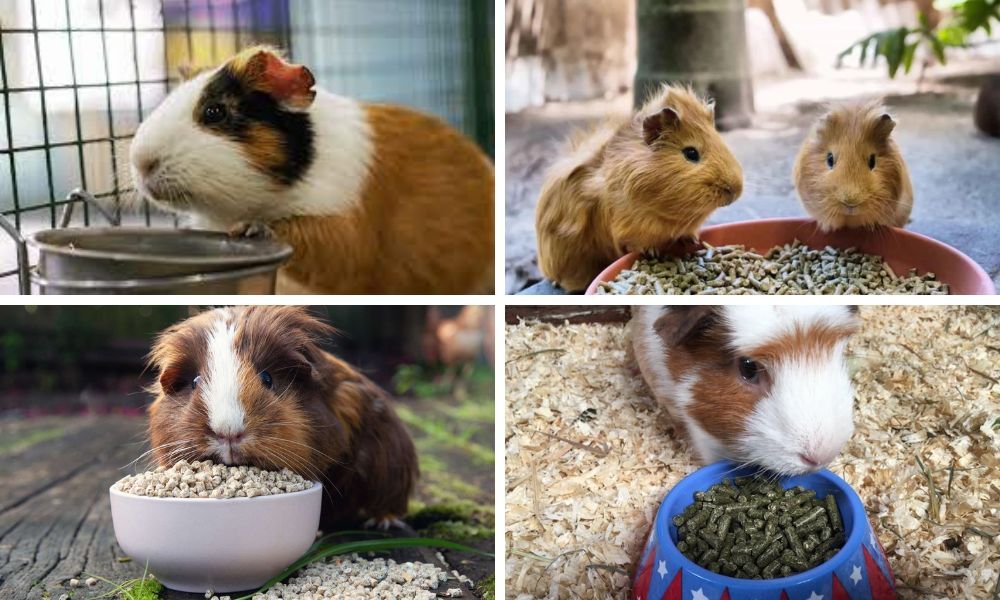
Encouraging Exercise and Play
To help your guinea pig lose weight, incorporate more exercise into their daily routine. This can include more time outside the cage or setting up a play area with tunnels and toys to encourage movement. Exercise not only helps with weight loss but also enhances their mental well-being.
When to Seek Veterinary Advice
If you're concerned about your guinea pig's weight, it's always best to consult with a veterinarian. They can provide a tailored plan for weight loss, including a specific diet and exercise regimen. They can also rule out any underlying health issues that may be contributing to the weight problem.
The Importance of a Balanced Diet
A balanced diet is crucial for preventing your guinea pig from becoming overweight. This means providing a variety of foods in the right proportions, including a constant supply of grass hay, fresh vegetables, and a small number of pellets. Avoiding high-calorie snacks and ensuring they get their daily requirement of Vitamin C is also essential.
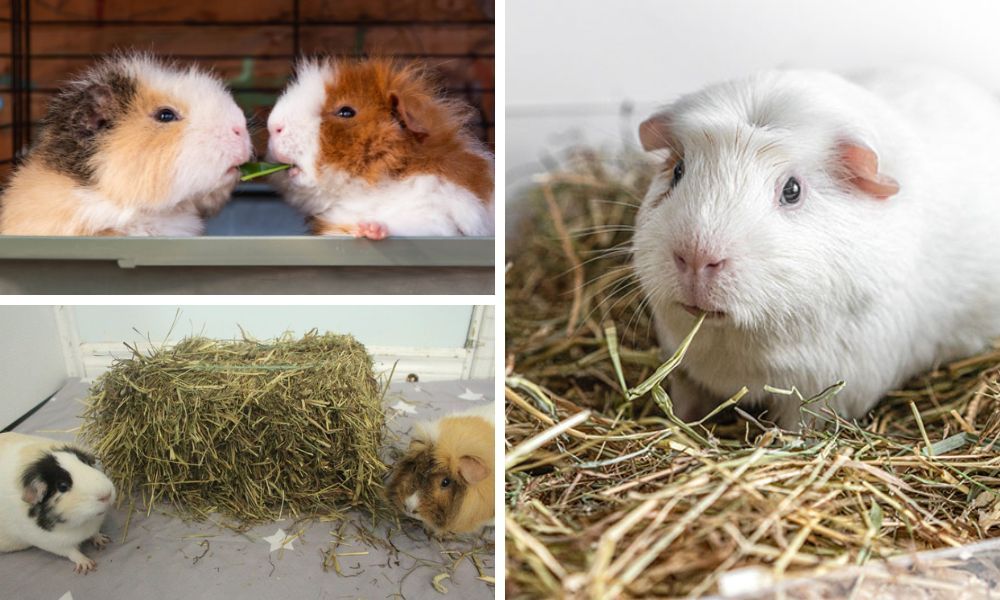
Healthy Treats for Your Guinea Pig
While treats are an enjoyable part of your guinea pig's diet, they should be given in moderation. Healthy treats include small pieces of fruit or vegetables that are low in sugar and high in fiber. These can be used as rewards during playtime or training sessions without contributing to weight gain.
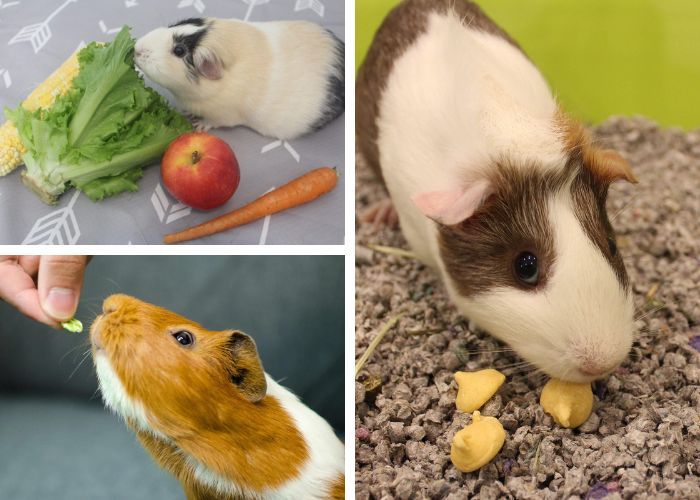
The Impact of Excess Weight on Health
Carrying extra weight can significantly impact your guinea pig's health. Overweight animals are at a higher risk of developing serious conditions such as heart disease, diabetes, and joint problems. By keeping your guinea pig at a healthy weight, you're not only extending their lifespan but also improving their quality of life.
Creating an Ideal Living Environment
The environment you provide for your guinea pig can influence their weight. A cage that is too small can restrict their movement, leading to too little exercise. Ensure that your guinea pig's living space or cage is large enough to allow for ample movement and that it includes enrichment items to encourage physical activity.
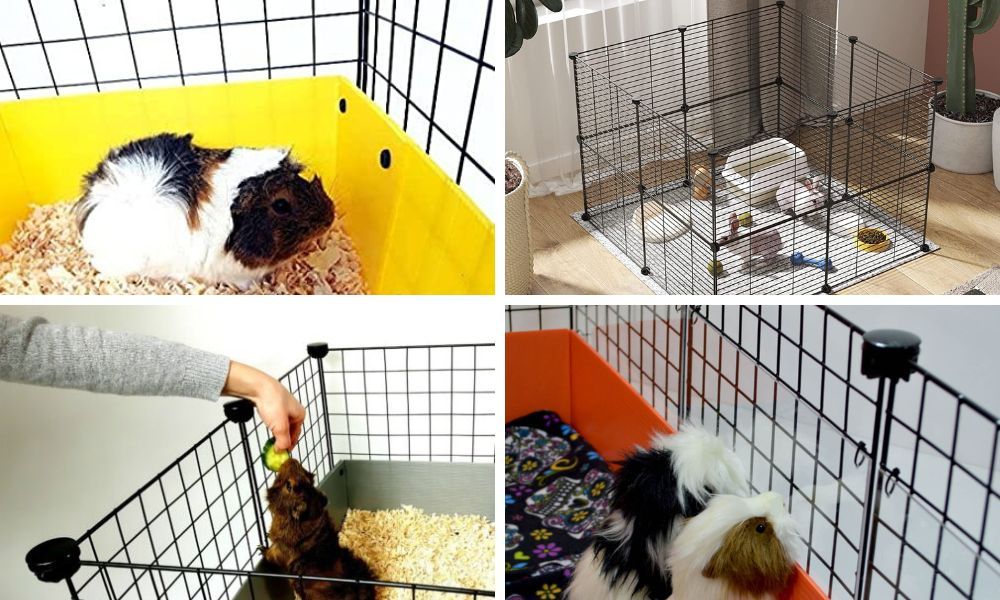
Summary
Managing your guinea pig's weight is a multifaceted approach that involves monitoring their diet, ensuring they get enough exercise, and keeping up with regular weigh-ins. By understanding the risks associated with excess weight and implementing a balanced diet and exercise plan, you can help your guinea pig achieve and maintain a healthy weight. Remember, when in doubt, always seek advice from a veterinarian to address any concerns about your guinea pig's health.
FAQ Section
Q: How can I tell if my guinea pig is overweight? A: Look for signs such as excess fat around the legs and chin, difficulty moving around, and an inability to feel their ribs under the fat. Regular weigh-ins can also help you determine if your guinea pig is gaining excess weight.
Q: What should I feed my guinea pig to ensure they maintain a healthy weight? A: Your guinea pig's diet should consist mainly of grass hay, fresh vegetables, and a controlled amount of pellets. Avoid giving too many high-calorie treats and ensure they have a constant supply of Vitamin C.
Q: How much exercise does my guinea pig need? A: Guinea pigs require daily exercise to maintain a healthy weight. Ensure they have a spacious cage to move around in and provide additional playtime outside the cage in a safe, enclosed area. Use toys and tunnels to encourage activity and play.

